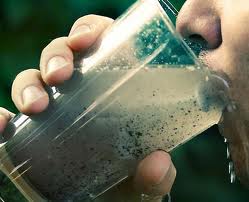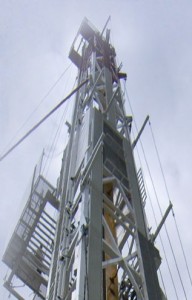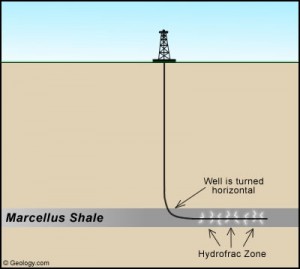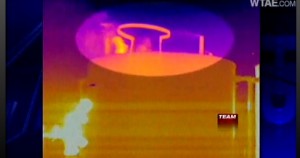The U.S. Environmental Protection Agency has for the first time implicated hydraulic fracturing (“fracking”) in groundwater contamination. Though hardly the last word on this increasingly common practice for extracting natural gas from the ground, and not a blanket indictment of the practice, it is a significant finding. This whole issue is heating up in the east, with Pennsylvania and New York at the center of what has become a well-known controversy in the Marcellus shale region.
My own view is that while it may be possible to do hydraulic fracturing safely in a lot of places, there have been so many allegations of energy companies contaminating groundwater and dumping the wastewater from fracking operations irresponsibly that it’s hard to feel confident about how safe it is. And I still don’t feel comfortable hearing from these companies that there is no reason to worry about the millions of gallons of water and toxic fluids being injected into each gas well since, as they claim, these fluids are put so far below the water table that this stuff will never find its way back up to contaminate our groundwater.
How many times have we heard from companies, “Trust us, it’s safe,” only to find out years later how wrong they were. Once groundwater is contaminated, it’s not easily cleaned up. We don’t even know where a lot of this water goes once it seeps into the ground. We don’t have extensive maps of underground reservoirs and waterways. How can anyone guarantee the safety of the waters we drink and fish without understanding this in much greater detail?
Be circumspect about all this. The brook trout that rely on all this groundwater are watching closely!



